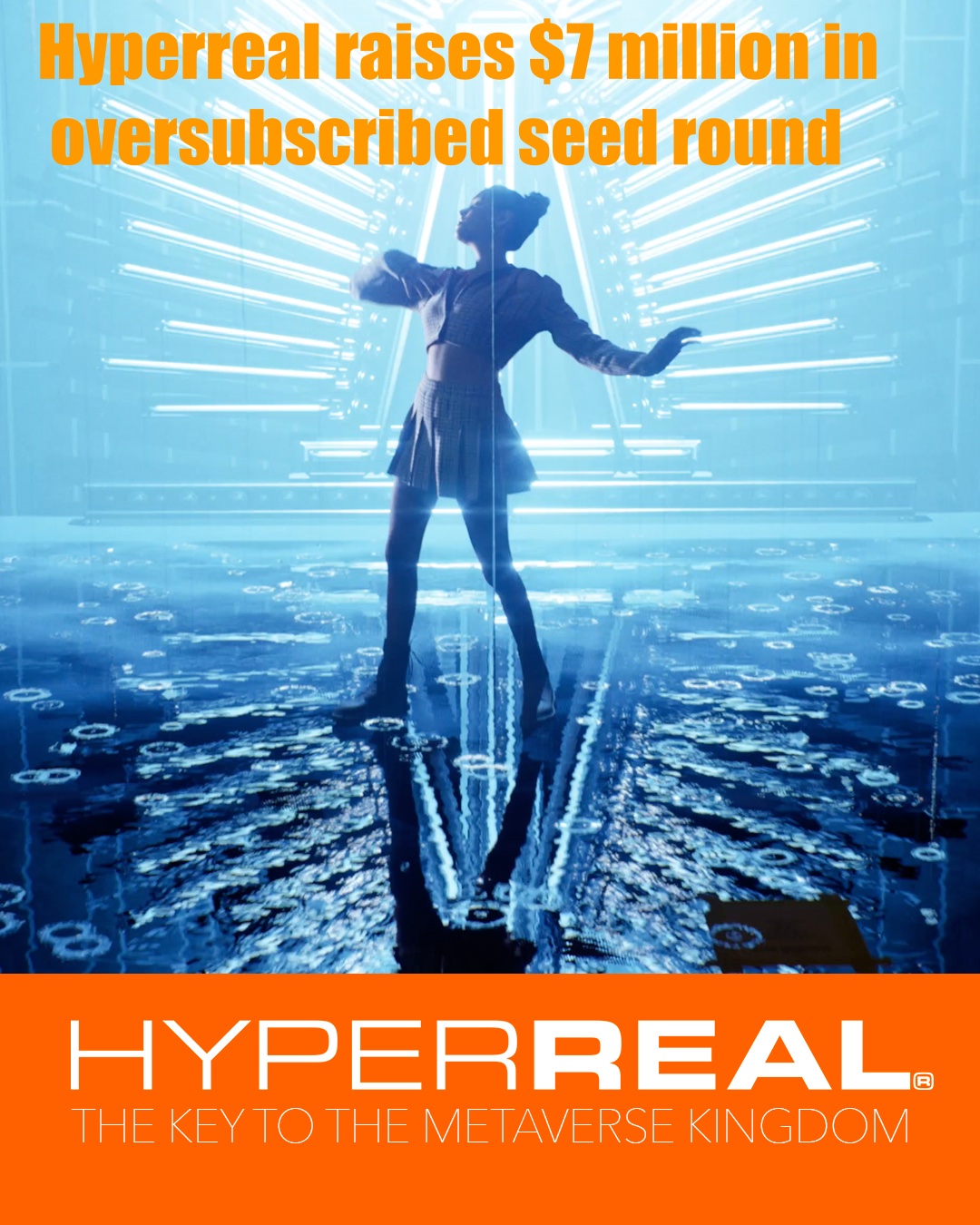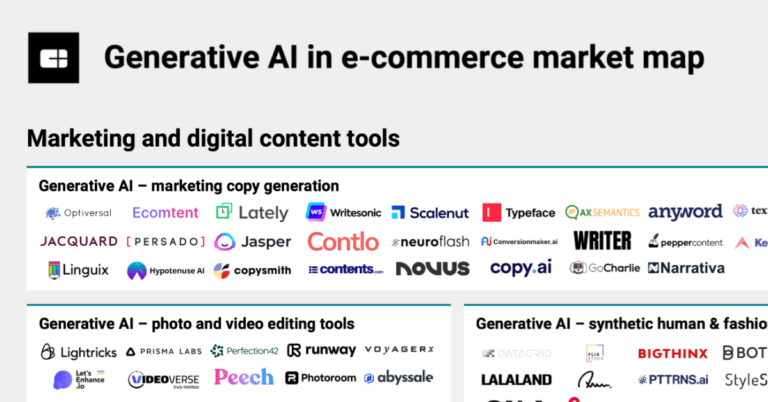
Hyperreal
Founded Year
2019Stage
Grant | AliveTotal Raised
$7MMosaic Score The Mosaic Score is an algorithm that measures the overall financial health and market potential of private companies.
-46 points in the past 30 days
About Hyperreal
Hyperreal focuses on the development of digital identities within the entertainment and virtual ecosystem industries. The company provides a platform for the creation and licensing of digital identities and performances using blockchain technology. Hyperreal's services are aimed at the entertainment industry, content creators, and brands interested in virtual appearances and commerce. It was founded in 2019 and is based in New York, New York.
Loading...
Hyperreal's Product Videos


Hyperreal's Products & Differentiators
HyperModel
High resolution digital humans for performance in met averse entertainment
Loading...
Research containing Hyperreal
Get data-driven expert analysis from the CB Insights Intelligence Unit.
CB Insights Intelligence Analysts have mentioned Hyperreal in 1 CB Insights research brief, most recently on Oct 17, 2024.

Oct 17, 2024
The generative AI for e-commerce market mapExpert Collections containing Hyperreal
Expert Collections are analyst-curated lists that highlight the companies you need to know in the most important technology spaces.
Hyperreal is included in 4 Expert Collections, including Blockchain.
Blockchain
8,714 items
Companies in this collection build, apply, and analyze blockchain and cryptocurrency technologies for business or consumer use cases. Categories include blockchain infrastructure and development, crypto & DeFi, Web3, NFTs, gaming, supply chain, enterprise blockchain, and more.
Digital Content & Synthetic Media
2,287 items
The Synthetic Media collection includes companies that use artificial intelligence to generate, edit, or enable digital content under all forms, including images, videos, audio, and text, among others.
Generative AI
2,825 items
Companies working on generative AI applications and infrastructure.
Artificial Intelligence
10,195 items
Hyperreal Patents
Hyperreal has filed 1 patent.
The 3 most popular patent topics include:
- data management
- digital media
- image processing

Application Date | Grant Date | Title | Related Topics | Status |
|---|---|---|---|---|
9/29/2022 | Digital media, Data management, Live-preview digital cameras, Image processing, Video on demand services | Application |
Application Date | 9/29/2022 |
|---|---|
Grant Date | |
Title | |
Related Topics | Digital media, Data management, Live-preview digital cameras, Image processing, Video on demand services |
Status | Application |
Latest Hyperreal News
Aug 20, 2023
A new episode of Netflix's "Black Mirror" explores how celebrities will contend with AI replicas. How to regulate these replicas has also been raised in the ongoing Hollywood strikes. The way these issues are handled for actors and performers could have an impact on everyone. The season six premiere of the Netflix series "Black Mirror" explores a world in which humans are haunted by their AI replicas. Amid the rapid development of AI chatbots that can mimic famous people and historical figures , the alternate reality "Black Mirror" portends seems a stone's throw away from our own. The episode centers on a woman called Joan – a middle manager at a tech company who presumably lives her life out of the public eye. That's why she's shocked to discover a new series called "Joan is Awful" on a fictitious streaming platform called Stream berry. The show stars Salma Hayek , sporting the same hair, outfits, and mannerisms as Joan and acting out events from Joan's own life. Joan talks to a lawyer about suing Streamberry, but the lawyer tells her she allowed the company to exploit her personal data when she accepted its terms and conditions. She also tells Joan that the entire show is made from computer-generated-imagery. The real Salma Hayek simply licensed her image to Streamberry, so that they could use an AI-generated replica of her on the show. In time, it's revealed that the woman who's been playing Joan this whole time is actually a digital likeness of the actress Annie Murphy. In fact, the entire show is a reenactment of the life of "Source Joan" — a woman who lives somewhere in the real world. Actors are already tackling the question of AI doubles Last month, thousands of actors followed screenwriters and went on strike to demand better protections from studios in regards to wages, staffing, and generative AI. One question the strikers have raised is how to regulate AI-generated replicas . In a statement , SAG-AFTRA, the union representing more than 160,000 actors, cautioned that technology such as generative AI could leave "principal performers and background actors vulnerable to having most of their work replaced by digital replicas." Some celebrities, though, are already embracing a world in which they may coexist with their AI replicas. According to a report by The Information, "many stars and agents are quietly taking meetings with AI companies to explore their options." On the one hand, AI replicas could present new monetization options for big-name celebrities to license their intellectual property, per the report. At the same time, they could also amplify the number of ways a celebrity could tarnish their brand. "Part of my job is to go through and approve every single photograph of my clients," one entertainment manager told The Information. "If they were to have digital doubles, that would expose them to so much more brand risk." What does this mean for the rest of us? As the "Black Mirror" episode suggests, regular people may soon have to contend with managing their own digital likenesses as well. Soul Machines, a New Zealand-based company , is one among a handful of companies using AI to make "digital people," as it claims on its website . It offers three packages that range from $39 to $399 a month, with features for configuring the personality, gestures, and even conversation of a digital avatar. In an episode of the podcast "In Machines We Trust," Greg Cross, the CEO and cofounder of Soul Machines, explained how the company creates its avatars. "We think about high-quality CGI or avatar-type animation it's all human-acted content. So, human actors play the role of the avatars, they get captured by these incredibly specialized cameras, the data gets processed, and the data is used to bring the avatar to life," he said, adding that AI's become a big part of the company's approach. A 2021 report from The Verge noted that Soul Machines mostly makes "people" for customer service and digital outreach. However, Soul Machines has also digitized celebrities like NBA player Carmelo Anthony, K-pop star Mark Tuan, and golfer Jack Nicklaus, according to its site . Carmelo Anthony's image has been digitized by Soul Machines. Foto: Phelan M. Ebenhack/AP Images Meanwhile, Remington Scott, the founder of another "digital human" company called Hyperreal , already has a digital version of himself. Scott told The Information: "I don't know if I'll be around for my grandkids, but I will be around for my grandkids in many ways. People will be able to control their digital source code for future generations of their families. And you can get to know a grandpa who wasn't there." Read the original article on Business Insider
Hyperreal Frequently Asked Questions (FAQ)
When was Hyperreal founded?
Hyperreal was founded in 2019.
Where is Hyperreal's headquarters?
Hyperreal's headquarters is located at New York.
What is Hyperreal's latest funding round?
Hyperreal's latest funding round is Grant.
How much did Hyperreal raise?
Hyperreal raised a total of $7M.
Who are the investors of Hyperreal?
Investors of Hyperreal include HBAR Foundation, CJ ENM, David Levy, Pearl Abyss, ZASH and 4 more.
Who are Hyperreal's competitors?
Competitors of Hyperreal include Metaphysic and 7 more.
What products does Hyperreal offer?
Hyperreal's products include HyperModel and 2 more.
Loading...
Compare Hyperreal to Competitors

Aww creates virtual humans using 3DCG technology and AI. The company provides services such as the development of virtual influencers and virtual live-streaming events. Aww primarily works with the entertainment and fashion industries. It was founded in 2019 and is based in Shibuya, Japan.

DeepMotion specializes in AI motion capture and body tracking within the animation and graphics industry. The company offers cloud-based services that transform text and video into lifelike 3D animations, accessible through web and mobile platforms. DeepMotion's technology is primarily utilized in sectors such as AR, VR, gaming, film, and robotics. DeepMotion was formerly known as Midas Touch Interactive. It was founded in 2014 and is based in San Mateo, California.

Ready Player Me provides avatar creation and customization tools for the gaming and virtual experiences industry. The company has an avatar system that allows developers to integrate customizable avatars into their games and apps, as well as a platform for users to create and personalize avatars using a selfie. Ready Player Me's services serve the gaming industry. Ready Player Me was formerly known as Wolf3D. It was founded in 2014 and is based in Lodz, Poland.

in3D creates avatars for the metaverse, gaming, and application development within the technology sector. The company offers a platform that allows users to create 3D avatars using a phone camera and integrate these avatars into digital products. in3D serves developers in the metaverse and gaming industries who are looking for 3D avatars. It was founded in 2019 and is based in Wilmington, Delaware.
Krikey is a company that provides AI-driven animation tools and 3D avatar creation within the animation and video editing industry. Their products include a generative AI video editor that allows users to create videos with 3D avatars, and tools that convert text or videos into animations using motion capture technology. Krikey's products are used in social media content, educational materials, gaming, and marketing. It was founded in 2017 and is based in San Francisco, California.
DeepfakesWeb.com provides a platform for creating deepfake videos using artificial intelligence within the entertainment and digital media sectors. Users can upload source and target videos, which the AI processes to create a deepfake. The platform is available to individuals and professionals in the entertainment, gaming, satire, and cultural sectors who are exploring deepfake technology. It is based in Japan.
Loading...
